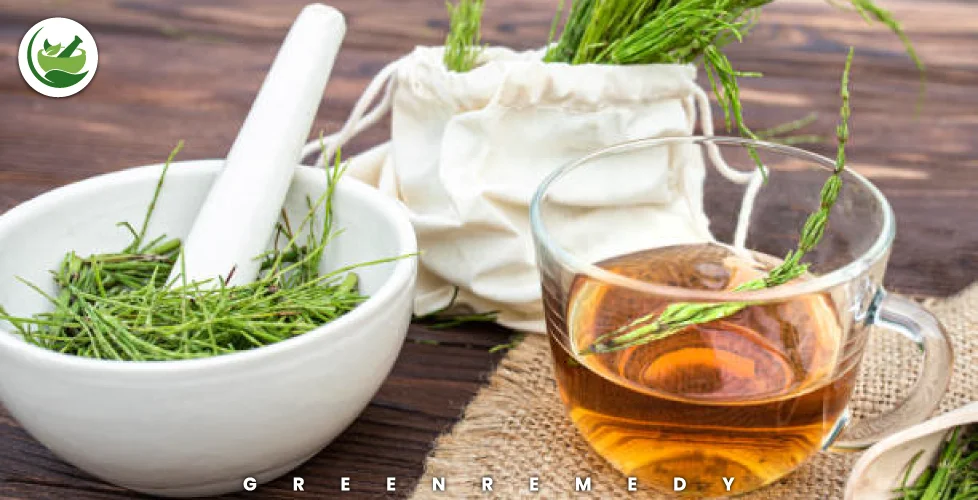
Hair growth remedies come and go, but some natural treatments have stood the test of time. One of the most talked-about and widely used herbal solutions today is rosemary water for hair growth. From ancient civilizations to modern beauty influencers, rosemary has been celebrated for its ability to improve scalp health, strengthen strands, and encourage faster, thicker hair growth.
Whether you’re dealing with thinning hair, slow growth, or just want stronger, shinier locks, rosemary water could be the herbal boost your hair care routine needs. In this article, we’ll explore the science behind rosemary water, its benefits, easy recipes you can try at home, and practical tips for maximum results.
Read More: Skin Nourishment: Daily Herbal Skincare Routines
Why Rosemary Water is a Hair Care Game-Changer
Rosemary (Rosmarinus officinalis) is a fragrant evergreen herb native to the Mediterranean. Traditionally used for cooking and medicinal purposes, it’s also been a popular hair care ingredient for centuries.
What makes rosemary water so special for hair growth is its rich combination of antioxidants, anti-inflammatory compounds, and circulation-boosting properties. When applied to the scalp, rosemary water can:
- Stimulate blood flow to hair follicles.
- Deliver essential nutrients to roots.
- Strengthen hair shafts and reduce breakage.
- Combat dandruff and dryness.
The Secrets of Rosemary Water for Hair Growth
When it comes to natural remedies, rosemary water has a few secrets that make it so effective:
- Stimulates Dormant Follicles – Rosemary’s natural compounds wake up inactive hair follicles, encouraging new growth.
- Blocks Excess DHT – Helps prevent the hormone that causes hair thinning from damaging follicles.
- Delivers Antioxidants Directly to the Scalp – Protects follicles from free radical damage and keeps them healthy.
- Acts as a Natural Conditioner – Adds shine, softness, and smoothness without chemical buildup.
- Balances Scalp Oils – Keeps the scalp hydrated but not greasy, creating the perfect growth environment.
How to Make Rosemary Water for Hair Growth at Home
The beauty of rosemary water is that it’s simple and affordable to make. Here are some tried-and-true recipes:
Recipe 1: Basic Rosemary Water Rinse
Ingredients:
- 2–3 fresh rosemary sprigs (or 2 tablespoons dried rosemary)
- 2 cups of water
Instructions:
- Bring the water to a boil.
- Add rosemary and simmer for 10–15 minutes.
- Remove from heat and let it steep until cooled.
- Strain and store in a spray bottle or jar.
How to Use:
- After shampooing, pour rosemary water over your hair as a final rinse.
- Massage into the scalp and leave in (no need to rinse out with plain water).
Recipe 2: Rosemary and Mint Refreshing Hair Spray
Ingredients:
- 2 cups water
- 2 tablespoons dried rosemary
- 1 tablespoon dried peppermint leaves (optional)
- 5 drops rosemary essential oil
Instructions:
- Boil water and add rosemary and peppermint leaves.
- Let it simmer for 15 minutes, then cool and strain.
- Add essential oil and pour into a spray bottle.
How to Use:
- Mist your scalp and hair daily to refresh and nourish.
Recipe 3: Rosemary and Green Tea Growth Booster
Ingredients:
- 1 cup water
- 1 tablespoon dried rosemary
- 1 green tea bag
Instructions:
- Boil water and add rosemary.
- After 10 minutes, add green tea bag and steep for 5 minutes.
- Strain and store.
How to Use:
- Use as a post-shampoo rinse to combine rosemary’s stimulation with green tea’s DHT-blocking effects.
How to Use Rosemary Water for Maximum Hair Growth
Using rosemary water effectively is key to seeing results:
- Consistency is Everything – Apply 2–4 times a week for best results. Hair growth takes time, so expect changes in 3–6 months.
- Massage the Scalp – Gently massage rosemary water into the scalp for 3–5 minutes to boost blood circulation.
- Leave It In – Leaving rosemary water in your hair (without rinsing) allows maximum absorption.
- Pair with a Healthy Routine – A balanced diet, proper hydration, and minimal heat styling will enhance rosemary water’s effects.
Read More: Chia Water Benefits for Athletes: Hydration, Endurance, and Recovery
Benefits of Rosemary Water for Hair Growth

Using rosemary water regularly can offer a range of benefits for your hair and scalp. Here’s what you can expect:
- Boosts Hair Growth
Rosemary stimulates dormant hair follicles and encourages them to enter the growth phase faster, helping your hair grow thicker and longer over time. - Strengthens Hair Strands
Rich in vitamins and minerals like iron, calcium, and vitamins A, C, and B, rosemary water fortifies hair from root to tip, reducing breakage and split ends. - Reduces Hair Thinning and Hair Loss
By helping block excess DHT and nourishing follicles, rosemary water supports healthier hair retention and minimizes shedding. - Enhances Scalp Health
Its antimicrobial and anti-inflammatory properties help calm irritation, fight dandruff, and maintain a balanced, healthy scalp environment. - Adds Natural Shine and Softness
Regular use leaves hair softer, smoother, and more manageable, giving it a natural, healthy shine without harsh chemicals. - Gentle and Chemical-Free
Unlike synthetic treatments, rosemary water is safe for most hair types, including sensitive scalps, making it an ideal natural alternative. - Improves Hair Texture
Over time, rosemary water can improve hair elasticity, making strands less prone to frizz and damage from daily styling.
Tips for Improving Hair Health
Simple and Effective Ways to Strengthen and Nourish Your Hair
1. Be Consistent
- Hair growth takes time, so use rosemary water 2–4 times a week for at least 3 months before expecting visible results.
2. Use Fresh Rosemary for Maximum Potency
- Fresh sprigs contain more natural oils and nutrients than dried rosemary, though dried herbs still work well.
3. Apply to a Clean Scalp
- Wash or lightly cleanse your scalp before application so rosemary water can penetrate better.
4. Massage While Applying
- Gently massage your scalp for 3–5 minutes after applying to boost blood circulation to hair follicles.
5. Leave It In for Better Absorption
- You can rinse it out, but leaving rosemary water in (as a leave-in spray) allows your scalp to fully absorb its nutrients.
6. Pair with Rosemary Essential Oil
- For an extra boost, mix a few drops of rosemary essential oil into a carrier oil (like coconut or jojoba) and use it once a week alongside rosemary water.
7. Refrigerate and Use Within a Week
- Homemade rosemary water is preservative-free. Store in a sealed container in the fridge and make a fresh batch weekly.
8. Avoid Overuse if You Have a Sensitive Scalp
- While rosemary is gentle, overuse can cause dryness in some people. If irritation occurs, reduce frequency.
9. Combine with Other Growth-Boosting Ingredients
- Mix rosemary with green tea, peppermint, or aloe vera water for added scalp benefits.
10. Support from the Inside
- Pair rosemary water with a nutrient-rich diet, proper hydration, and reduced heat styling for the best results.
Read More: Discover the Powerful Hot Coffee with Chia Seeds Benefits for Men’s Sexual Performance
Potential Side Effects of Rosemary Water

While rosemary water is natural and generally safe for most people, it’s still important to be aware of possible side effects — especially if you’re using it for the first time or have a sensitive scalp.
1. Scalp Irritation
- What Happens: Some people may experience redness, itching, or a burning sensation, especially if the rosemary water is too concentrated.
- How to Avoid: Always do a patch test on a small area of skin before applying it to your scalp. If irritation occurs, dilute the solution with more water or reduce usage frequency.
2. Dryness
- What Happens: Overuse can strip the scalp’s natural oils, leading to dryness or brittle hair.
- How to Avoid: Limit use to 2–4 times a week and follow up with a light conditioner or nourishing oil.
3. Allergic Reactions
- What Happens: Although rare, some individuals may be allergic to rosemary.
- How to Avoid: If you experience swelling, rash, or difficulty breathing after use, discontinue immediately and seek medical advice.
4. Color Changes in Hair
- What Happens: Rosemary water may slightly darken hair over time, which might be undesirable for people with light or color-treated hair.
- How to Avoid: If you want to prevent this, limit the soaking time or rinse with plain water after application.
5. Eye Irritation
- What Happens: Accidental contact with eyes can cause stinging or discomfort.
- How to Avoid: Apply carefully and rinse thoroughly with water if it gets into your eyes.
What Results Can You Expect?
Realistic Timeline of Hair Growth and Visible Changes with Rosemary Water.
| Timeframe | Expected Results |
| Weeks 1–2 | Scalp feels calmer, less itch/flaking; hair looks shinier. No visible growth yet. |
| Weeks 3–4 | Slightly reduced shedding; tiny baby hairs may appear at hairline. |
| Weeks 6–8 | Baby hairs grow longer; part line looks fuller; hair feels stronger and healthier. |
| 3–4 Months | Noticeable density; 1–2 inches of new length for most people. |
| 6+ Months | Thicker, healthier hair; low shedding; maintain use 2–3 times per week. |
Read More: Top Benefits of Chia Seeds for Women’s Sexual Health
FAQ’s About Rosemary Water
Your most common questions about rosemary water for hair growth
1. How do I use rosemary water for hair growth?
Apply rosemary water directly to your scalp, massage gently for a few minutes, and either leave it in or rinse after 30 minutes. Use 2–4 times a week for best results.
2. Can you spray rosemary water on your hair every day?
Yes, you can spray it daily, but monitor for dryness or irritation and reduce frequency if your scalp feels uncomfortable.
3. Why is my hair falling out after rosemary water?
Mild shedding can happen as old hairs make way for new growth, but if hair loss worsens, stop using it and consult a dermatologist.
4. Is it better to use rosemary water or oil for hair growth?
Both work well—rosemary oil is more concentrated, while rosemary water is gentler and better suited for frequent use.
5. Is rosemary good for thinning hair?
Yes, rosemary can improve circulation, strengthen follicles, and may help slow thinning over time when used consistently.
Final Thoughts
Using rosemary water for hair growth is a simple, natural, and affordable way to support healthy, strong, and shiny hair. Backed by both tradition and science, rosemary can help stimulate hair follicles, strengthen strands, and keep your scalp in optimal condition.
Whether you choose a basic rinse, a refreshing spray, or a nourishing herbal blend, consistency is key. Pair your rosemary water routine with good scalp care, a balanced diet, and gentle hair handling, and you could see the luscious results you’ve been dreaming of.






